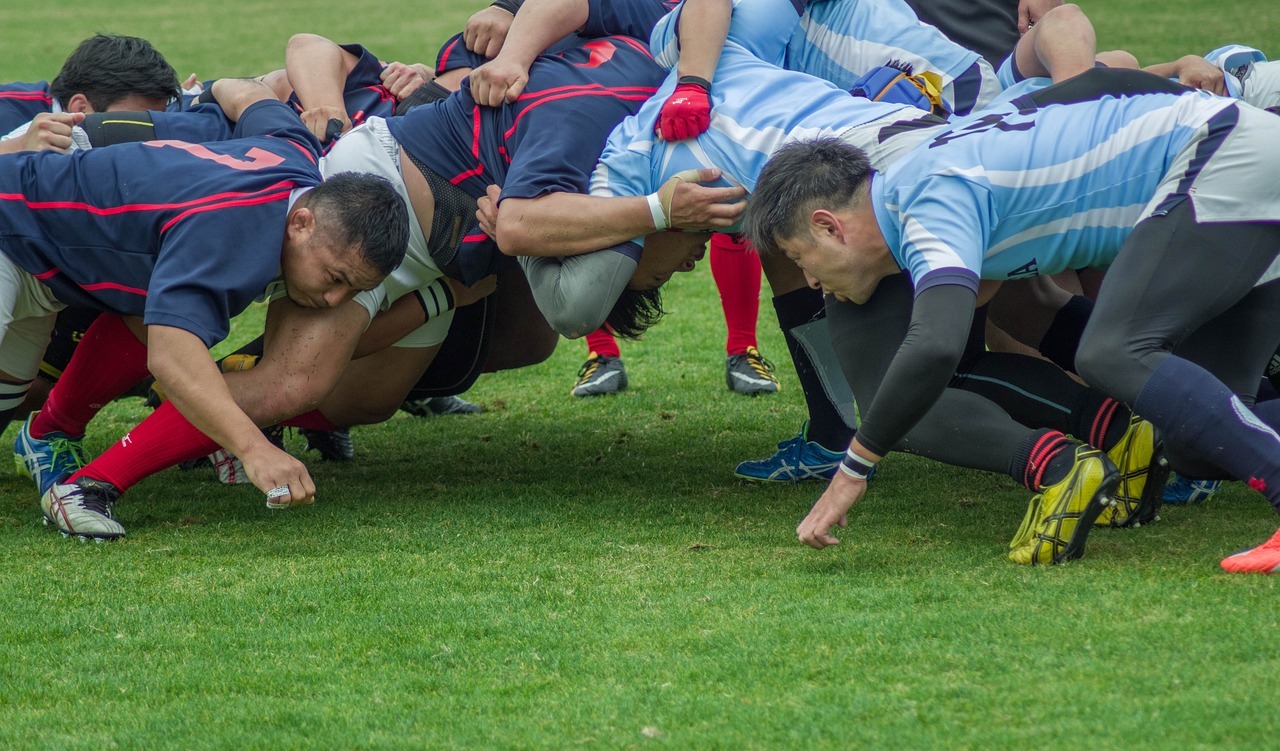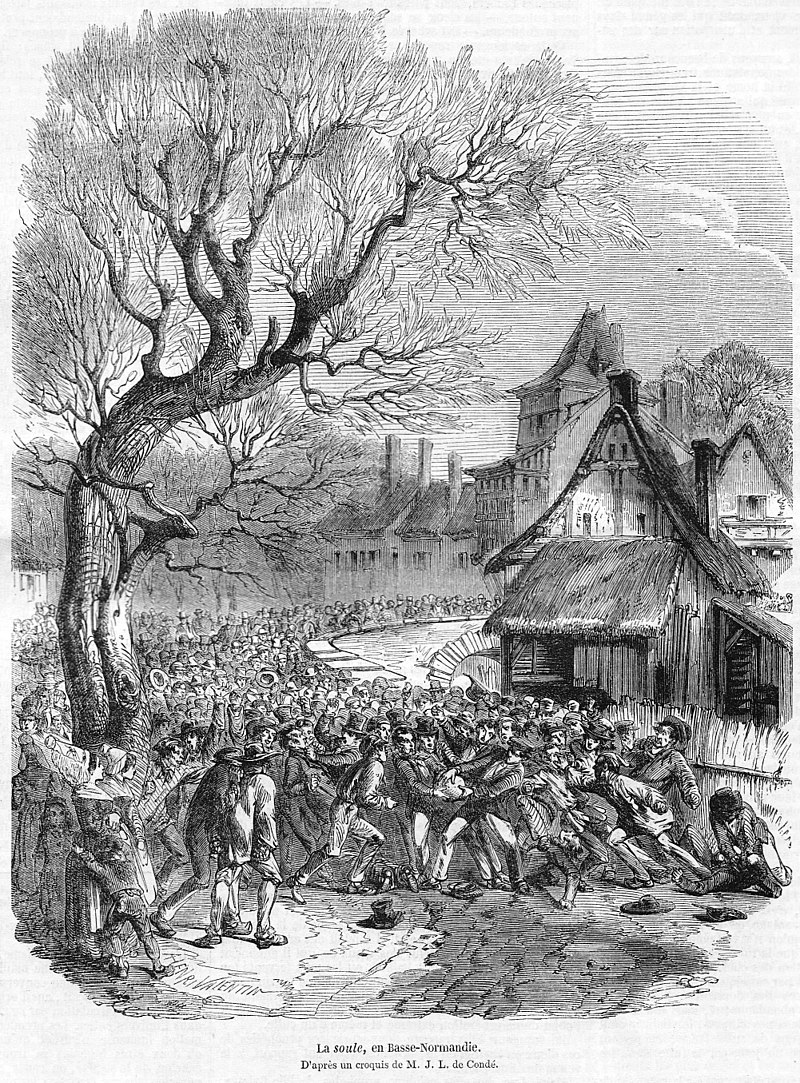How Did the JIFF Rules Transform French Rugby

French rugby has undergone a transformation in recent years, driven by changes to player development regulations. The Ligue Nationale de Rugby (LNR) introduced new rules in 2009 that have reshaped the sport at both club and national levels.
These regulations, known as JIFF (Joueurs Issus des Filières de Formation), set requirements for clubs to include home-grown talent in their squads. To qualify as JIFF, players must meet specific criteria related to their time spent in French rugby academies or clubs.
Background of the JIFF Rules
JIFF stands for "locally trained players" and represents players who have spent a minimum amount of time in French rugby academies or clubs. To meet JIFF requirements, players must have trained in France before the age of 23 or have spent a specific amount of time in French academies. These criteria aim to ensure that French clubs prioritize developing local talent rather than relying heavily on foreign players.
The Top 14 and ProD2, France's top two professional leagues, must now adhere to JIFF quotas. Clubs are limited to 13 non-JIFF senior players in their squads. They must also maintain an average of 16 JIFF players in their matchday 23 throughout the season or face point deductions.
These rules have had a significant impact:
- Increased focus on youth development
- More opportunities for French players
- Improved national team performance
- Enhanced competitiveness of French clubs
The State of French Rugby Pre-JIFF
Before the implementation of JIFF rules, French rugby was dominated by foreign players, particularly in the Top 14 league, where international stars were often recruited in favor of developing local talent. The reliance on foreign players reduced opportunities for young French players to progress in professional rugby, leading to a lack of depth in domestic player development. Additionally, the French national team struggled to maintain consistency and depth, as limited local talent made it challenging to compete against teams with robust domestic pipelines.
The Top 14 remains an attractive destination for international players, but there's now a better balance with domestic talent. This mix has kept the league competitive while nurturing French stars.
Key figures in French rugby development:
- Antoine Dupont (scrum-half)
- Romain Ntamack (fly-half)
- Cameron Woki (lock/flanker)
These players represent the new generation of French talent that has emerged under the JIFF system.

Key Elements of the JIFF Rules
The JIFF rules brought about several structural changes within French rugby:
- Criteria for JIFF Qualification: A player qualifies as JIFF if they trained in France for a specified amount of time in their youth, ensuring early exposure to French rugby systems.
- Quota Requirements: Clubs in the Top 14 and ProD2 must include a minimum number of JIFF-qualified players in matchday squads.
- Penalties for Non-Compliance: Clubs failing to meet JIFF requirements face point deductions, which affects their rankings and incentivizes compliance.
These elements were introduced to strengthen the foundation of French rugby by creating a dependable pipeline for local talent to rise through the ranks and reach professional levels.
Immediate Effects of the JIFF Rules
The immediate impact of JIFF rules was visible in club recruitment and development strategies. Clubs began investing more in youth academies and homegrown talent, recognizing the importance of nurturing French players to meet JIFF quotas. Initially, clubs that previously relied on foreign players faced challenges adjusting to the new requirements, but over time, the emphasis on developing French players became a natural part of the club culture.
With JIFF in place, young French players gained more opportunities to play in professional leagues, resulting in a more balanced and competitive domestic league. Clubs also shifted their focus to scouting and recruiting local talent more aggressively to build squads that met JIFF requirements while still being competitive.
Long-Term Impact on French Rugby Clubs
In the long run, the JIFF rules encouraged clubs to create sustainable youth development systems. Top French clubs such as Toulouse, Racing 92, Toulon, Montpellier, and Castres Olympique invested heavily in their youth programs to develop homegrown talent. This approach allowed them to create a pipeline of skilled French players who could step up to fill roles traditionally occupied by foreign recruits.
Additionally, French clubs benefitted financially by reducing costs associated with recruiting high-profile foreign players. Instead, funds were directed toward improving domestic development programs, resulting in long-term savings and a stronger foundation for player progression. This approach ensured clubs were not only compliant with JIFF but also positioned for success within a sustainable framework.

Effects on the French National Team
The positive impact of JIFF rules has been evident in the performance of the French national rugby team, Les Bleus. With an increased pool of skilled local players competing at the top level, France’s national team has gained depth and consistency. Notably, the French U20 team has excelled in recent years, winning three of the last four World Rugby U20 Championships.
Today’s senior national team, with stars like Antoine Dupont, Romain Ntamack, and Cameron Woki, showcases the talent emerging from the JIFF system. These players have become central to the national team’s resurgence, helping France achieve success in international tournaments like the Six Nations and making Les Bleus strong contenders on the world stage.
Challenges and Criticisms of the JIFF Rules
While the JIFF rules have had a positive effect on French rugby, they haven’t been without challenges and criticisms:
- Balancing Competitiveness: Some clubs argue that strict JIFF quotas hinder their ability to remain competitive in European competitions, where they face clubs with fewer restrictions on foreign players.
- Salary Dynamics: JIFF-qualified players command higher salaries due to their value in meeting quotas, which has created unique market dynamics within French rugby.
- Club Adjustments: Clubs previously reliant on foreign talent had to shift recruitment strategies, sometimes resulting in growing pains as they adapted to the new rules.
Despite these challenges, JIFF rules have received wide acceptance and support due to their long-term benefits for French rugby.
Comparison to Other National Rugby Systems
The JIFF rules are relatively unique in their strict approach to prioritizing local talent. Similar initiatives exist in other countries, such as England’s Premiership Rugby and New Zealand’s Super Rugby, which focus on homegrown development, though not to the same extent. France’s model has provided a blueprint that other rugby systems are closely observing, as it demonstrates how nurturing domestic talent can enhance national performance.
JIFF and French Rugby
The JIFF rules have already undergone some adjustments since their introduction, with increases in the required matchday average for JIFF players and additional educational requirements for young foreign players in French academies. As French rugby evolves, further refinements to the JIFF system may be implemented to ensure the ongoing balance between developing homegrown talent and maintaining competitiveness in international leagues.
Looking ahead, JIFF’s emphasis on domestic talent offers a sustainable model for French rugby’s growth. The success of the French national team and the depth of French rugby clubs suggest that the JIFF rules will continue to shape the landscape positively, creating a pathway for future generations of French rugby talent.

Conclusion
The success of French rugby under JIFF rules has caught the attention of other nations. Some are considering similar models to boost their domestic player development. While JIFF rules have been positive for French rugby, challenges remain. Balancing the need for homegrown talent with the desire to attract top international players is an ongoing process for clubs.
The future of French rugby looks bright, with a strong foundation of domestic talent now in place. The JIFF system has created a sustainable model for player development that should benefit the sport for years to come.




